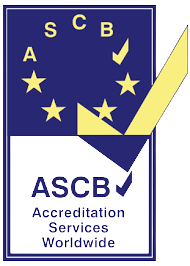Table of Content
- Introduction
- What makes curiosity in the workplace essential in a digitally transforming era of work?
- Take control of your workday
- Build purposeful and curiosity-led relationships at workplaces
- Harness the power of a solution-oriented mindset
- Curious people complete tasks and projects 2-4x times faster
- Experiment with new ideas and processes analytically
- Find new ways to solve old issues and problems
- Keep up the employee engagement rate in the organisation
- Build a continuous learning and development culture
- How to be more curious at the workplace and drive serious innovation?
- Conclusion
- FAQs
Introduction
Maintaining a sense of serious wonderment in your organisation or workplace takes inner drive and passion. It calls for curiosity in the workplace to be omnipresent. It is, in fact, one of the most underdetermined and overlooked leadership traits that can drive serious business profits at an unbeatable pace.
Even HR professionals and talent managers can build loyal relationships with their peers at workplaces when they are curious. The feeling of being more curious at your workplace is contagious. People you work with feel it instantly and start engaging with one another with more passion and inner drive.
To sustain this curiosity in the workplace, employees can leverage the social intranet that we offer. It has all elements or components from polls, surveys, events, discussion forums, groups, private and public chats, etc., to ensure employees stay active and work toward a common goal without missing vital information.
When you want to track the level of curiosity at work, ensure that employees are:
- Interested in learning new skills and talents
- Asking the right questions
- Discovering better ways to complete projects on time
Make this the norm of your curiosity-led culture when you implement an empathetic, intelligent, and highly automated workforce management tool like ours. Know more about the importance of building a curious bone in your employees from the blog post below.
Also read: How To Make Remote Employees Feel A Part Of The Team Actively?
Want to skip the post?

What makes curiosity in the workplace essential in a digitally transforming era of work?
Take control of your workday
Curious people take charge of their workday. They show up to work with purpose, enthusiasm, and unbeatable passion. They want to know what tasks they can complete in a day and how they can create more impact. They are always on the lookout for new things, tasks, and projects to become a subject matter expert and lead teams organically.
So, you will find them to be more disciplined than anyone else. You can trust these people with tougher projects, challenges, and roadblocks to smoothen out from the process.
Find them in the categories of stars, heroes, or star performers in the 9-box grid. So, you know such people are ready to take on new challenges and responsibilities. They drive a new wave of innovation, engagement, and seriousness in the functional department they work for or belong to.
Build purposeful and curiosity-led relationships at workplaces
Being curious in the workplace helps to build more purposeful relationships. Curious people want to know how they can manoeuvre their way to a successful journey with the people in the organisation. They will want to collaborate, connect, and coordinate with different people.
You will find them to be more empathetic, listening actively to others’ problems, and trying to solve other’s issues to improve the overall team’s performance and productivity.
These players are the top engagers on the social intranet, if given a chance or an opportunity. They can easily lead new events and tasks for bridging the gap between remote, in-house, or contractual workforce.
More people will trust these people to confide in them about their personal or professional issues. The best listeners are often in the HRD wing to ensure that they can remove the creases or tensions in the work culture and refine the norms once again.
Harness the power of a solution-oriented mindset
With a curious mind at work, you and your employees develop a solution-oriented mindset. You will find different ways to approach the problems in a better and new way. Your curiosity will push you to find solutions and be better at what you do every day.
With the social intranet we offer, you and your staff can continue to be curious and open dialogue for difficult conversations. To do so, you can take part in the discussion forums or streamed group chats.
It will be a single interface to communicate, be curious, and be proactive in solving impending issues at hand.
Curious people complete tasks and projects 2-4x times faster
Curiosity in the workplace helps you and your staff to focus on closing issues, tasks, and projects on time. You will want to jump onto another challenge or project as soon as you finish one. This can boost your proficiency and productivity in completing tasks at hand as you bring more passion to work daily.
Otherwise, you can also make AI tools like an automated workflow engine, like the one we offer, to complete your mundane and repetitive HR tasks. This improves your turnaround time to close tasks, tickets, and projects before the deadline.
Experiment with new ideas and processes analytically
You need assets in your team when you want to develop high-performing teams. That means you need an irreplaceable and indispensable talent. That talent must be innately curious and passionate about what they do, how they perform their duties, when do they clock in/clock out, who they interact with, how much they are active, and how often they engage.
Everything about such curious people tells the HR manager that they are highly self-aware and are ready to take on new challenges. They can read into analytics, and find patterns and trends easily. They will find and develop new ideas effortlessly and work around better ways to finetune the culture of an organisation or a team to be on the same page.
These people could be good at liaising and ensuring to bridge the communication gap between senior management and junior executives. They can process complex business problems analytically in their mind and solve the dormant issues before they surface and become uncontrollable.
Find new ways to solve old issues and problems
Curious people find new ways to solve old problems. It is a very adage associated with bringing and promoting curiosity at work. When people are curious, they will find better, new, and innovative ways to get the old work done.
Curious people at the workplace will want to know how much work they can complete in a day. They will keep self-analysing themselves and their work behaviour.
They also ensure to use all the right tools, like AI Suggest, CV Parser, HR Chatbots, etc., to assist them in generating job descriptions, closing on hiring and interviewing loops, and finding their way into the uKnowva portal with all relevant documents within seconds.
That’s one of the prime examples of solving old issues at a faster and more innovative rate when you are using uKnowva as an HR or hiring manager.
Keep up the employee engagement rate in the organisation
It is easy to improve the rate of employee engagement in your organisation when you have curious people using our social intranet. They give regular updates on the intranet or the newsfeed.
HR managers can post new polls, surveys, announcements, or banners on the intranet to excite the workers, despite their locations. Highly curious employees will look forward to participating in new events and bringing new challenges to the team in a friendly manner.
This strategy helps to break the old benchmarks and engage the staff regularly without extra efforts.
Build a continuous learning and development culture
Curiosity in the workplace helps you take new courses and learning paths and carve a new journey ahead of you. These individuals are interested in learning new skills, and having more product and service knowledge.
Curious people at work can be great at sales, always optimistic, and always looking forward to making new and better connections with internal and external stakeholders.
They will ensure to learn together with others in the team and level up the skill set of the entire team or the organisation. They can make the best of the eLMS which we offer to create and upload awesome content for the next-gen of workers in the organisation.
How to be more curious at the workplace and drive serious innovation?
- Use the social intranet regularly to ask questions, post your thoughts, create polls, and invest time in surveys.
- Participate in conflicting and constructive conversations.
- Have a healthy debate within the organisation, especially at an event.
- Be curious to learn new courses and skill sets.
- Try to learn new skill sets with two or more members of your team or the organisation.
- Be open to new ideas, criticism, constructive feedback, and unexpected appreciation.
- Be vulnerable to being hurt, accept mistakes, and move past conflicts.
- Be bold, courageous, and open enough to forgive others for mistakes or arguments at work as long as everyone wants to achieve common organisational goals.
- Connect with as many people as possible on the social intranet. Know about their profile, work, strengths, and weaknesses.
- Team up with different people on various micro or macro projects to expand the horizon of your perspective, experience, and knowledge.
- Set a daily engagement goal to ensure that you keep motivating others around you to scale up their engagement and job involvement rate.
Conclusion
I am sure we have read enough about why curiosity in the workplace is necessary to bring in more results.
We know that curious people have more drive, and they want to break barriers and achieve more by doing less. They can be really good managers, leaders, and influencers in the organisation.
If you’re using a 9-box grid method, you will know who these communicators and curious people are as they will most likely be in the stars' or high performers' boxes or categories.
So, start the initiative of managing a diverse workforce with passion, curiosity, and AI smarts to drive home more profits and revenue when you do uKnowva.
FAQs
How important it it to remain curious at work?
It is fairly important to be curious at work because technological development is rapidly evolving. Today, we are living in a highly brittle, anxious, and incomprehensible world of work. So, every quarter or every month, the employee needs to skill up and learn a new art of doing things in a better form or order. For this purpose, uKnowva offers all organisations an eLMS function or extension. This is a next-gen LXP to upload updated course content and ensure that the learning never halts for your staff.
How can organisations leverage curiosity for strategic decision-making?
By encouraging curiosity, organisations can gather diverse perspectives, consider multiple options, and make more informed and strategic decisions.
What impact does a lack of curiosity have on employee morale and job satisfaction?
A lack of curiosity may lead to boredom and disengagement, negatively impacting morale and job satisfaction among employees.
How can companies balance curiosity with productivity?
It's essential to strike a balance by fostering curiosity without compromising productivity, emphasising the importance of focused exploration and learning within the context of work tasks.
How can leaders cultivate a culture of curiosity in their teams?
Leaders can promote curiosity by encouraging questions, supporting experimentation, and creating a safe space for employees to explore new ideas.
In what ways does curiosity contribute to professional development?
A curious mindset encourages continuous learning and skill development, helping individuals stay relevant in a rapidly evolving work landscape.












